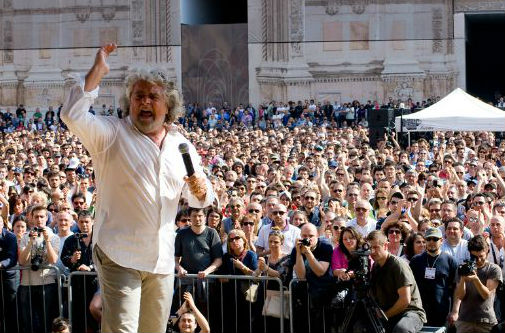유럽의 디지털크러시

Digitalcracy is a newly coined word which is a compound word of ‘digital and democracy’. It uses online media to set up a ubiquitous environment to gather citizens’ true political opinions as diverse and many as possible. This new democratic approach is being examined in the European countries with many platforms. Finland’s ‘Open Ministry’ is a system which revised the Constitution and open legislation to the public. By gathering the 50,000 citizens’ agreement, the bill can be introduced to the National Assembly. Ireland’s a crowd-sourced way to revise the Constitution and France’s the ‘Digital Republic Bill’ are all in the same vein as they try to center the public’s opinion in making the law. By doing so, much more citizens’ opinions and ideas can be heard, be reflected in law making or revising and ultimately change the society they live in.
There are also many start-up parties which arise to refuse the current major-party based politics. Italy’s ‘V-Day’ (the "V" stands for the Italian world, vaffanculo, "fuck off") in 2007 shows angry citizen’s act out clearly. It was organized by Beppe Grillo who is a famous comedian for political satire. At first, people who liked Beppe gathered to criticize corrupt politicians, but more than 2,000,000 people participated in a V-day rally that took placed on September 8, 2007 to protest against the corruption of the Italian Parliament. This rally led to a new party ‘MoVimento 5 Stelle’ which seek direct democracy. Podemos in Spain is also a political party which represents the angry public’s voice towards the current government by using an online platform. These parties were all minorities at first, but now they are the front-runners of the new political movement. Korea has this kind of movement as well. WAGL which stands for ’We-All-Govern Lab’ is a political ‘start-up’ which researches and promotes the online-based grassroots democracy in Seoul, Korea. It shows that peoples’ unity actually can make a difference in politics like many of the digitalcracy groups and movements in European countries.
Like the Hegelian dialectic shows us, everything around us is being challenged because of its flaws. Thus, antithesis came up and ultimately synthesis which is a developed mixed form of the original one and antithesis of the original shows up. Politics is not an exception but digitalcracy is one of the alternatives to the current system. It is very innovative and problem-solving, but there might be a problem in the future. Therefore, mature citizenship should keep up with the developing political platforms as well. Change is very natural, so we should not be afraid of it and keep facing the problems to move on.
By Na Min-a, Student Editor
나민아 기자
polygraphy@naver.com

